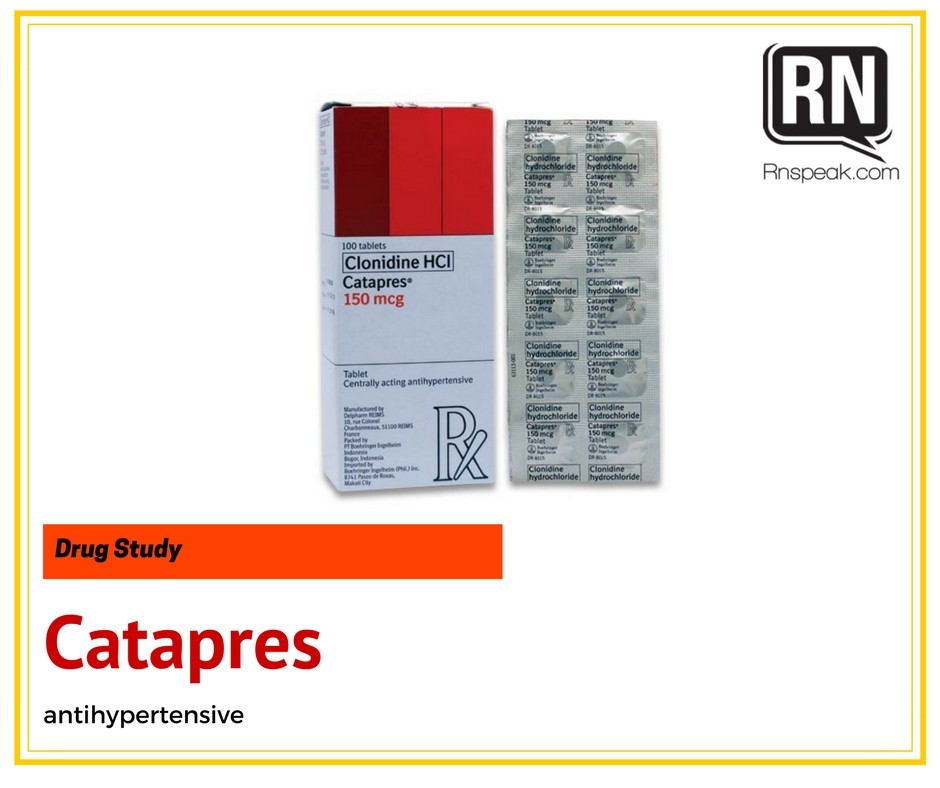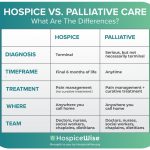
Clonidine – Oral, Catapres
Medication Uses How To Use Side Effects Precautions Drug Interactions Overdose Notes Missed Dose Storage USES: This medication is used alone or with other medications to treat high blood pressure (hypertension). Lowering high blood pressure helps prevent strokes, heart attacks, and kidney problems. Clonidine belongs to a class of drugs that act in the brain to lower blood pressure. It works by relaxing blood vessels so blood can flow more easily.OTHER This section contains uses of this drug that are not listed in the approved professional labeling for the drug but that may be prescribed by your health care professional. Use this drug for a condition that is listed in this section only if it has been prescribed by your health care professional.This drug may also be used for attention deficit hyperactivity disorder (ADHD), hot flashes during menopause, withdrawal symptoms from narcotic drugs, and to help people quit smoking. HOW TO USE: Take this medication by mouth with or without food as directed by your doctor, usually twice daily (in the morning and at bedtime). If the doses are not equal, take the larger dose at bedtime to decrease the risk of side effects.The dosage is based on your medical condition and response to treatment.Use this medication regularly to get the most benefit from it. To help you remember, take it at the same times each day. It is important to continue taking this medication even if you feel well. Most people with high blood pressure do not feel sick.Do not stop taking this medication without consulting your doctor. You may experience symptoms such as nervousness, agitation, shaking, and headache. A rapid rise in blood pressure may also occur if the drug is suddenly stopped. The risk is greater if you have used this drug for a long time or in high doses, or if you are also taking a beta blocker. There have also been rare reports of severe, possibly fatal reactions from stopping this drug too quickly. Therefore, it is important that you do not run out of clonidine or miss any doses. Tell your doctor or pharmacist immediately if you are unable to take the medication (for example, due to vomiting). To prevent any reactions while you are stopping treatment with this drug, your doctor may reduce your dose gradually. Consult your doctor or pharmacist for more details. Report any new or worsening symptoms immediately.When used for a long time, this medication may not work as well and may require different dosing or an additional medication. Talk with your doctor if this medication stops working well (such as your blood pressure readings remain high or increase).
SIDE EFFECTS: Dizziness, lightheadedness, drowsiness, dry mouth, or constipation may occur. If any of these effects persist or worsen, tell your doctor or pharmacist promptly.To reduce the risk of dizziness and lightheadedness, get up slowly when rising from a sitting or lying position.To relieve dry mouth, suck on (sugarless) hard candy or ice chips, chew (sugarless) gum, drink water, or use a saliva substitute.Remember that your doctor has prescribed this medication because he or she has judged that the benefit to you is greater than the risk of side effects. Many people using this medication do not have serious side effects.Tell your doctor right away if you have any serious side effects, including: fainting, slow/irregular heartbeat, mental/mood changes.A very serious allergic reaction to this drug is rare. However, get medical help right away if you notice any symptoms of a serious allergic reaction, including: rash, itching/swelling (especially of the face/tongue/throat), severe dizziness, trouble breathing.This is not a complete list of possible side effects. If you notice other effects not listed above, contact your doctor or pharmacist.In the US -Call your doctor for medical advice about side effects. You may report side effects to FDA at 1-800-FDA-1088.In Canada – Call your doctor for medical advice about side effects. You may report side effects to Health Canada at 1-866-234-2345. PRECAUTIONS: Before taking clonidine, tell your doctor or pharmacist if you are allergic to it (including having a rash while using clonidine patches); or if you have any other allergies. This product may contain inactive ingredients, which can cause allergic reactions or other problems. Talk to your pharmacist for more details.Before using this medication, tell your doctor or pharmacist your medical history, especially of: kidney disease, heart rhythm problems.This drug may make you dizzy or drowsy. Do not drive, use machinery, or do any activity that requires alertness until you are sure you can perform such activities safely. Avoid alcoholic beverages.Before having surgery, tell your doctor or dentist about all the products you use.Contact lens wearers may need to use wetting eye drops since this medication can cause dry eyes.Older adults may be more sensitive to the side effects of this product, especially dizziness, or drowsiness.During pregnancy, this medication should be used only when clearly needed. Discuss the risks and benefits with your doctor.This drug passes into breast milk. Consult your doctor before breast-feeding. DRUG INTERACTIONS: Drug interactions may change how your medications work or increase your risk for serious side effects. This document does not contain all possible drug interactions. Keep a list of all the products you use and share it with your doctor and pharmacist. Do not start, stop, or change the dosage of any medicines without your doctor’s approval.Tell your doctor or pharmacist if you are taking other products that cause drowsiness including alcohol, antihistamines, drugs for sleep or anxiety, muscle relaxants, and narcotic pain relievers.Check the labels on all your medicines because they may contain ingredients that could cause drowsiness or increase your blood pressure. Ask your pharmacist for more details.
QUESTION
OVERDOSE: If overdose is suspected, contact a poison control center or emergency room immediately. US residents can call their local poison control center at 1-800-222-1222. Canada residents can call a provincial poison control center. Symptoms of overdose may include: severe dizziness/drowsiness, fainting, slow/irregular heartbeat, slow/shallow breathing, seizures. NOTES: Do not share this medication with others.Lifestyle changes such as stress reduction programs, exercise, and dietary changes may increase the effectiveness of this medicine. Talk to your doctor or pharmacist about lifestyle changes that might benefit you.Check your blood pressure and pulse regularly while taking this medication. Learn how to monitor your own blood pressure and pulse at home, and share the results with your doctor. MISSED DOSE: If you miss a dose, take it as soon as you remember. If it is near the time of the next dose, skip the missed dose and resume your usual dosing schedule. Do not double the dose to catch up. If you miss 2 or more doses in a row, contact your doctor right away. STORAGE: Store at room temperature away from light and moisture. Do not store in the bathroom. Keep all medications away from children and pets.Do not flush medications down the toilet or pour them into a drain unless instructed to do so. Properly discard this product when it is expired or no longer needed. Consult your pharmacist or local waste disposal company. Information last revised November 2013. Copyright(c) 2013 First Databank, Inc.
Report Problems to the Food and Drug Administration
You are encouraged to report negative side effects of prescription drugs to the FDA. Visit the FDA MedWatch website or call 1-800-FDA-1088.
Selected from data included with permission and copyrighted by First Databank, Inc. This copyrighted material has been downloaded from a licensed data provider and is not for distribution, except as may be authorized by the applicable terms of use.
CONDITIONS OF USE: The information in this database is intended to supplement, not substitute for, the expertise and judgment of healthcare professionals. The information is not intended to cover all possible uses, directions, precautions, drug interactions or adverse effects, nor should it be construed to indicate that use of particular drug is safe, appropriate or effective for you or anyone else. A healthcare professional should be consulted before taking any drug, changing any diet or commencing or discontinuing any course of treatment.
CONDITIONS OF USE: The information in this database is intended to supplement, not substitute for, the expertise and judgment of healthcare professionals. The information is not intended to cover all possible uses, directions, precautions, drug interactions or adverse effects, nor should it be construed to indicate that use of particular drug is safe, appropriate or effective for you or anyone else. A healthcare professional should be consulted before taking any drug, changing any diet or commencing or discontinuing any course of treatment.


